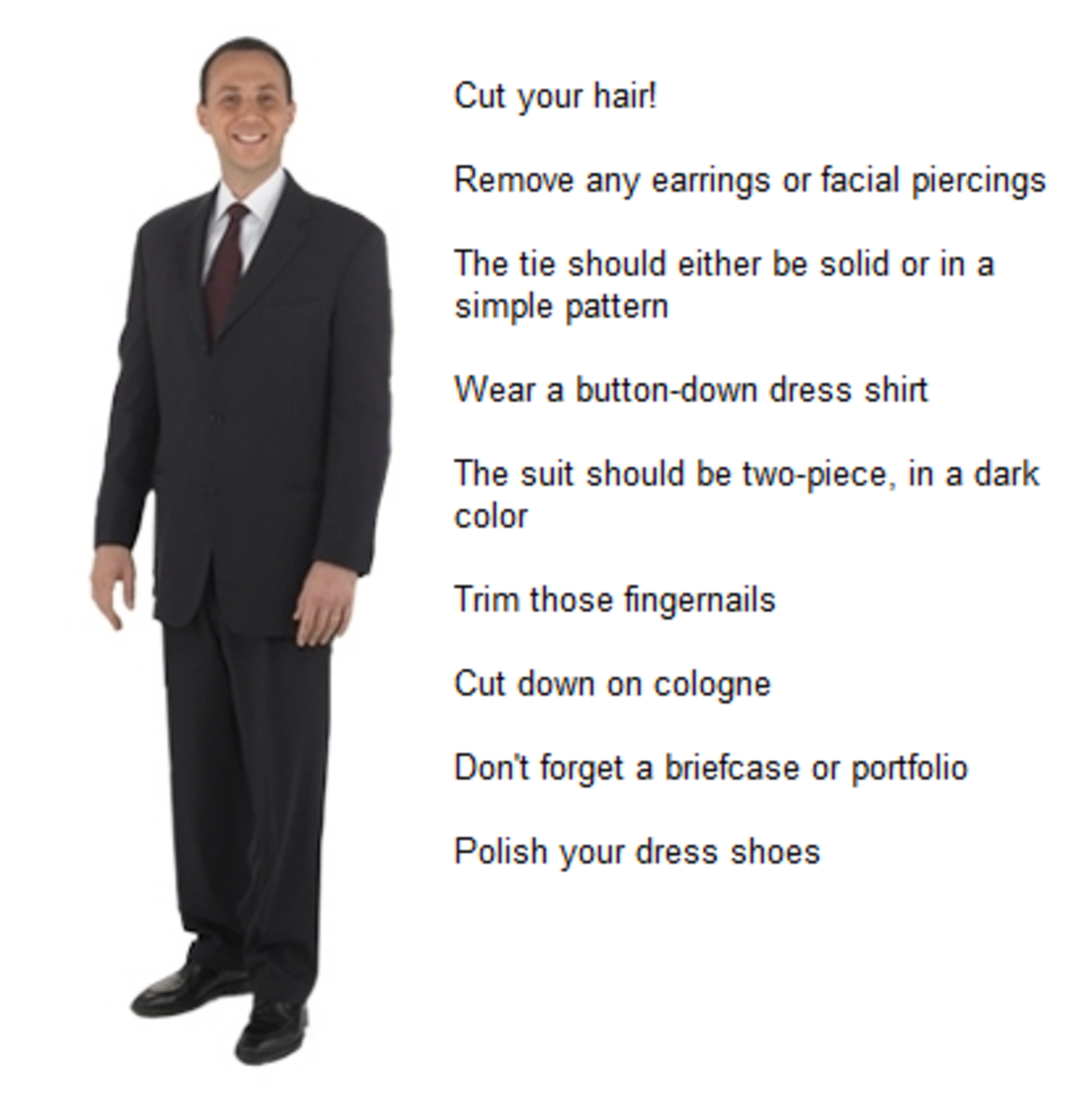- HubPages»
- Business and Employment»
- Employment & Jobs»
- Interviewing for a Job
10 Things to NOT say in a Job Interview

It's not always what you say, but how you say it
Content is king, but how you come across is important too. Here's some quick tips on how to get your point across.
- Breathe from your diaphragm, particularly if you are nervous. This will help slow your speech and control the tone of your voice
- Slow down! You'll be easier to understand and appear more in control
- Speak eloquently. try not to drop letters, such as T, G & S
- Use light and shade in the tone of your voice. No monotones, please
- Smile! It will lift your voice
- Don't forget to say please and thank you!
1. What do you want to know?
The most common job interview question is "Tell me about yourself". It's a great question where you can prepare your answer in advance and talk about your skills and experience to date in a positive manner. This will set the tone and pace of the interview and show your personality from the offset.
Unfortunately, many candidates don't prepare in advance and verbally limp forwards with a weak "So, what do you want to know about me?" or "Do you know to know about my professional or personal life?". This is a flaky start and a golden opportunity missed.
The interviewer wants to hear about your career history to date up to the point of why you are sitting there today, in roughly 30 seconds. In other words, a nice, short, sharp and succinct introduction to yourself - the why they should hire you.
If you have not prepared your answer in advance, the interviewer will most probably think you are not serious about the position. Let's face it; if you can't confidently talk about yourself, you're not going to be at the top of the pile to be hired.
Improve your speech

2. How much am I going to get?
In a first interview, it is a faux pas to talk about salary. Until you know there is an offer on the table, or the subject of salary is raised by the interviewer, you should be showing the company what benefit YOU will be to them and not trying to find out what's in it for you.
The same applies to asking questions surrounding the whole compensation package, such as company benefits, holidays, flexible working and so forth.
Usually, you will know the package in advance of the interview, however, many organisations don't want to disclose this until they are down to the final contenders. Would you want every Tom, Dick and Harry knowing how much you earn? I though not.
Do some background research, so that you know the rough salary range of the position, in line with the locality, type of organisation and your own expertise. Don't forget, you can always negotiate for a higher salary or better compensation package when you are offered the position. Don't sign the contract until you get what you want!
Quick Poll
Do you research the company before you attend a job interview?
3. What does the company do?
I kid you not! This is a common question during job interviews and one that I personally consider a deal breaker. I simply don't hire candidates who haven't taken the time to do some research. What would be the point? If they aren't interested enough to find out at least what the company does, then it is pretty much a guarantee that they won't be interested in the job role.
Do some research. It's easy to find out information now we have the internet.

4. Inappropriate language
During a job interview, you should be on your best behaviour, so swearing, profanities, blasphemy or slang are big no-no's.
It probably seems obvious to you, but you would be surprised how many people do. I know when I teach employability skills and we do mock-interview sessions, some of my learners are shocked that they have a "potty mouth" - they don't realise they are doing it - but are grateful that we spotted the slip ups.
Here's some of the tamer examples (and some alternatives!):
- "Oh, Christ! That's a tough question." (Pause to think before you speak!)
- "Jamawaddamean?" (Do you know what I mean?" / "Have I explained that well?")
- "Innit?" ("Isn't it?" / "That's correct")
- "Dunno" ("I haven't had experience of that before, but what I would do is...") - See No. 6
- "Man" (Er, no, my name is Jules and I am female, please don't call me man.)
5. Negative comments about your former boss, company or work colleagues
Most interviews involve questions surrounding your employment history, and let's face it, most of us have left previous jobs because there was something we didn't like, such as a horrible boss, colleagues we didn't get along with or the company itself.
While it is imperative you are honest with your answers, when asked about your former career, always speak positively and avoid the temptation to let off steam with your opinions and emotions.
You don't know who the person sitting in front of you knows. They may know someone you are talking about negatively and may think that if you are talking that way about other people or organisations; you will do the same to them when they are out of earshot.

6. Failing to give examples
The most popular style of questions tend to be competency based - "Give me an example of..." / "Tell me about a time when..." and hypothetical - "what would you do if..."
If you are asked such questions, you may find that you either haven't experienced that situation before, or you aren't sure what you would do. Two of the worst things for an interviewer to hear is "I don't know" or "I can't give an example."
If you are asked a competency based question, for example, "Tell me about a time when you have had to deal with a difficult customer" and you haven't actually encountered this scenario before, rather than saying "I haven't", it would be much better to say "I haven't dealt with a difficult customer before, but if I was in that situation, I would do this..."
The employer will then quickly establish that you are a quick thinker who uses their own initiative and you won't be phased by unfamiliar situations in the work place.
For the hypothetical questions, for example "What would you do if a colleague wasn't pulling his or her weight at work?" always give an answer. With this line of questioning, the employer is trying to ascertain your logic, common sense or how much training you may need if they hire you. Quite often, there isn't a 100% correct or incorrect answer, so just give it a go. Even being way off the mark is better than saying "I Dunno."
7. You don't have any weaknesses
Another popular question is "Tell me about your weaknesses." Never, ever say that you don't have any. We ALL do! I bet even the Queen has a few!
The interviewer is trying to establish how self-aware you are and how accountable you are for your own success or failure, so choose something that is a true weakness, but one that won't affect the job you are going for and talk about that.
8. Throw the question back to the employer
The strategy for answering job interview questions is simple (brace yourself for a wee bit of sarcasm);
- The employer asks a question
- You answer the question
It is very frustrating when a question is asked by the interviewer and the candidate then throws it back to them. Let me give you an example.
Interviewer - "If we were to hire you, what would be your top 3 priorities to tackle first?"
Candidate - "Well, what would be the top 3 priorities of the job role?"
Here's another example:
Interviewer - "Describe to me how you would manage the team here."
Candidate - "So, how do the team like to be managed?"
Would that drive you nuts if you were interviewing someone? Probably!
Consider all questions that may be asked prior to the interview and practise, practise, practise. If you need time to think, that's fine, but don't take so long that there's an awkward silence.
9. Waffle
Each answer you give, or each situation you describe should be of a length where the listener remains interested and engaged. Waffling on with too much description or irrelevant facts will encourage the interviewer to switch off and not actively listen to what you have to say.
Use my 20 - 70 - 10 rule of thumb here as a base for your answers:
- 20% of the content should be the beginning of your answer
- 70% of the content should be the middle ie. the bulk of your answer
- 10% is a nice, short ending
Any answers that are over 30 seconds, tend to be too long. Keep them short, factual and expressive. If the interviewer wants to know more, they will ask another question.

10. I don't have any questions
As sure as night follows day, and day follows night, you can be sure that the last question you will be asked in a job interview is "Do you have any questions?"
If you want the interviewer to see that you are keen and are really interested in the company, you must have some questions prepared in advance. If you don't, they may think that you aren't too bothered about working there and it would be a shame to fall at the final hurdle.
Write some questions down in a notebook and take it with you in case you forget what your questions are. If the interviewer has answered all of your questions as part of the conversation, you can simply take out your notebook, look up the page and say "Actually, I did have some questions prepared, but you have answered them all during the interview. Thank you."
Good luck!
Good luck with your next job interview. Let me know how you get on.








